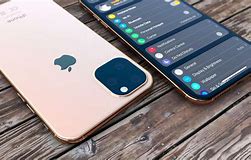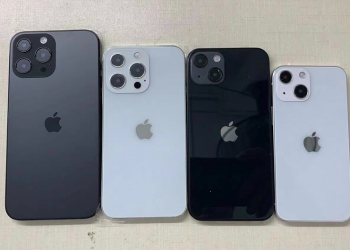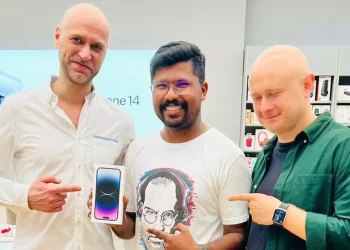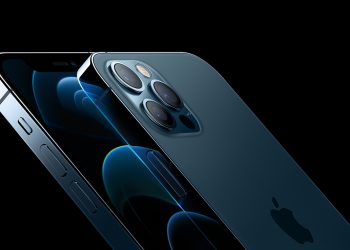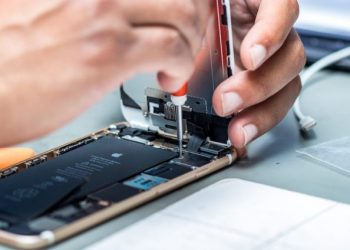The US has filed a landmark lawsuit against Apple which accuses the tech giant of monopolising the smartphone market and crushing competition.
In the lawsuit, the justice department alleges the company used its control of the iPhone to illegally limit competitors and consumer options.
The complaint accuses it of squashing the growth of new apps and reducing the appeal of rival products.
Apple has vowed to “vigorously” fight the lawsuit and denies the claims.
The sprawling complaint, filed at a federal court in New Jersey, alleges that Apple used “a series of shapeshifting rules” in a bid to “thwart innovation” and “throttle” competitors.
It accuses the California-based company of stopping competitors from offering rival services on the iPhone while also making it difficult for users to switch to alternative operating systems.
In a statement, Attorney General Merrick Garland said the company “undermines apps, products and services that would otherwise make users less reliant on the iPhone”.
The complaint lists a number of “anti-competitive” steps allegedly taken by the company, including blocking apps, suppressing mobile cloud streaming services, limiting third-party digital wallets and “diminishing the functionality” of smartwatches not made by the company.
At a news conference on Thursday, Mr Garland said Apple had “maintained its monopoly, not simply by staying ahead of the competition on the merits, but by violating federal antitrust laws”.
“Consumers should not have to pay higher prices because companies break the law,” Mr Garland said, accusing Apple of “locking its customers in” while at the same time “locking its competitors out”.
He pointed to the experience of iPhone users who message non-Apple smartphones, which he said led to “limited functionality” including non-encrypted communications and pixelated or grainy images.
“Apple creates barriers that make it extremely difficult and expensive for both users and developers to venture outside the Apple ecosystem,” Mr Garland said.
If prosecutors succeed at trial they could force Apple to alter contracts, or possibly even make structural changes within the company, according to the complaint and officials at the press conference.
Those potential remedies are far off and that there are many possibilities, however.
A spokesman for Apple, Fred Sainz said that the lawsuit was “wrong on the facts and the law” and that Apple would “vigorously defend against it”.
“The lawsuit threatens who we are and the principles that set Apple products apart in fiercely competitive markets,” Mr Sainz said. “If successful, it would hinder our ability to create the kind of technology people expect from Apple.”
It marks the third time Apple has been sued by the justice department since 2009, and is the first antitrust challenge against the company under President Joe Biden’s administration.
Anat Alon-Beck, a business law professor at Case Western Reserve University in Ohio, told the BBC that Apple “systematically” excludes rivals from its ecosystem.
“By doing that, Apple is hurting so many start-up businesses, stakeholders, customers, and in my opinion, its shareholders,” she said.
Another antitrust expert, Vanderbilt University professor Rebecca Allensworth, called the case a “blockbuster” – even if it mirrors the cases the justice department has recently brought against US tech giants.
“At a clip of about one a year, they [the justice department] drop a big monopolisation case against one of the major tech platforms,” she said. “This is the last of the big four – Facebook, Apple, Google and Amazon – to fall. That’s really important.”
Ms Allensworth contended that the case, at its core, is about increasing functionality between smartphones and making the technology and software more accessible to consumers and other businesses.
“It’s not about breaking up Apple into small units or spinning off divisions,” she said.
Apple has faced a growing legal backlash over its iOS ecosystem and business practices. Last month, it was fined €1.8bn (£1.5bn) by the EU for breaking competition laws over music streaming.
The firm had prevented streaming services from informing users of payment options outside the Apple app store, the European Commission said.
Ms Alon-Beck said the justice department’s new lawsuit was “far more extensive” than its previous legal challenges in the EU.
Competition commissioner Margrethe Vestager said Apple had abused its dominant position in the market for a decade, and ordered the tech giant to remove all of the restrictions. Apple said it would appeal against the decision.
According to the justice department, Apple’s share of the US smartphone market exceeds 70%, and its share of the broader smartphone market exceeds 65%.
source: BBC








































